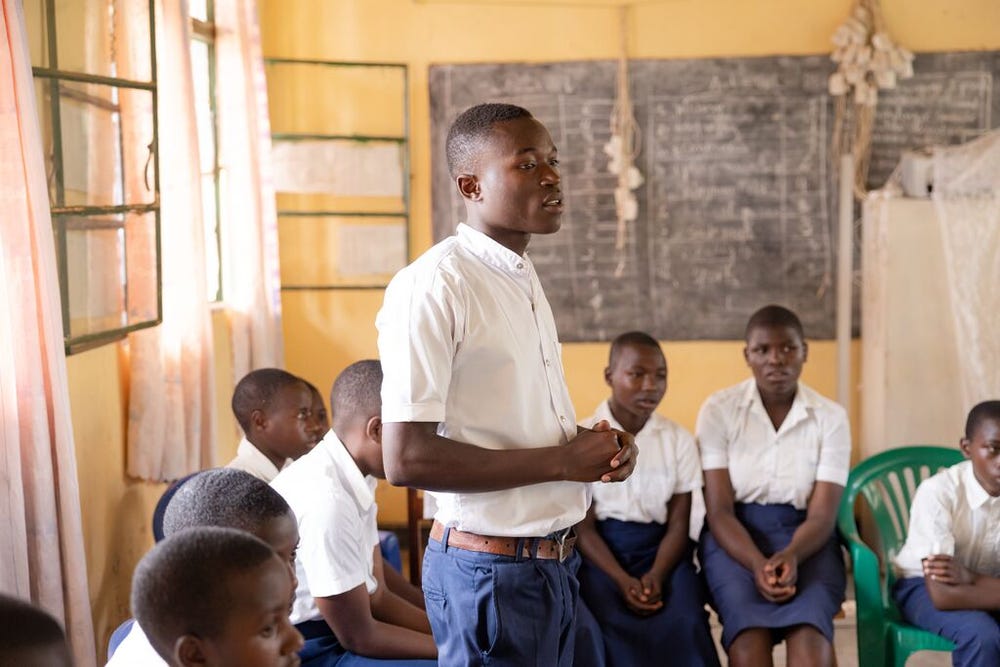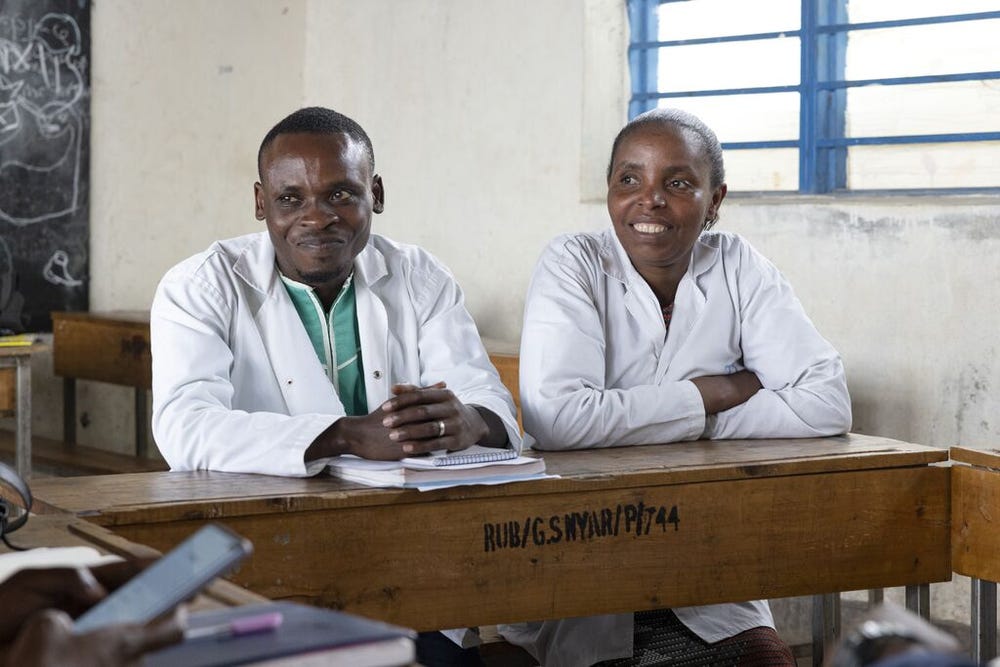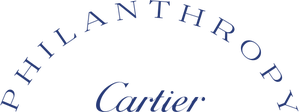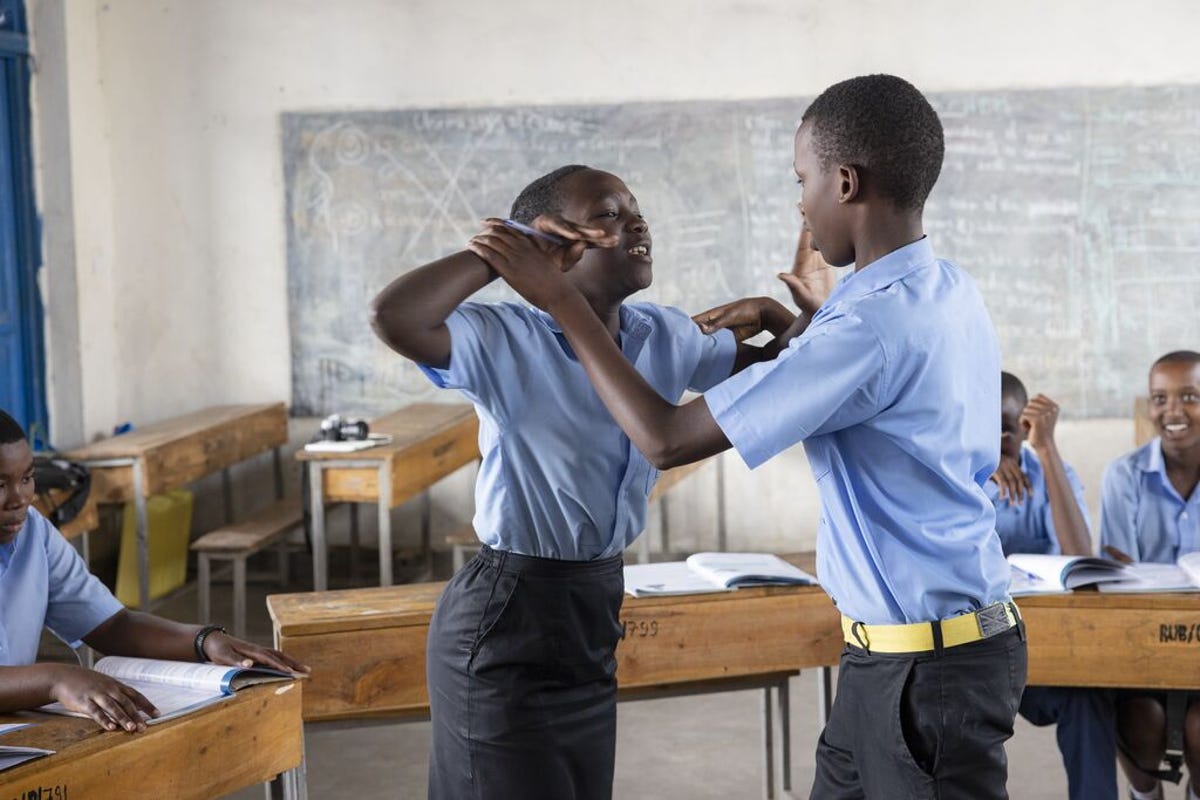This isn't a lesson!
Why emotional intelligence is a crucial skill for students and teachers in Rwanda
© Cartier Philanthropy/ Cyril Le Tourneur
Current data recently highlighted by the Center for Global Development shows that nearly a third of children in low- and middle-income countries are regularly exposed to shockingly high levels of violence in school. Boys and girls are victims of bullying and aggressive behaviour perpetrated not only by their peers but often by teachers as well, with corporal punishment remaining common even where it has been banned. Moreover, the (scant) reliable data available about sexual violence committed against students suggests staggering numbers that are still likely to underestimate the scale of the problem. Deeply rooted cultural norms may in fact mean that children - especially girls - are not aware of their right to be safe from sexual violence and do not therefore report it.
Fortunately, many institutions and organisations are working to transform learning environments such as schools into fertile ground for an effective social and emotional education.
Ingabire Medius is the Head Teacher of Groupe Scolaire Rusiga, in Rulindo District, Rwanda. This school is one of 55 across the country where The Wellspring Foundation for Education is delivering the evidence-based resilience and adolescent health training curriculum Youth First Rwanda. Designed by our partner WorldBeing with the Rwanda Basic Education Board to improve the mental and physical wellbeing of lower secondary school students (aged 12-15), the curriculum comprises 25 sessions that tackle multiple topics from managing conflict and tensions to active listening, setting goals and solving problems with effective communication, opposing violence and practicing forgiveness and apologies.
“Youth First Rwanda creates a safety net for students, who feel they can count on each other, and an environment of trust in the school,” commented Madame Medius when we met her last February. The students enrolled in the programme, she added “feel they can get advice from their teachers and speak openly about their problems. Sometimes they open their eyes and realise that a certain situation is not the norm, as they had thought, and they seek help.”
Jean Pierre, Deputy Head of School at the Group Scolaire Gikombe in Rubavu, confirmed the significance and pertinence of the programme’s approach. He reflected that in his experience “many teachers need to be supported to find ways to discipline their students without resorting to abusive practices that can create fear and distrust in the classroom. Youth First Rwanda changed that drastically. Students feel safe now. And when they do, they learn better.”
The curriculum has been shown to advance pupil wellbeing in multiple domains, including social engagement, emotional wellbeing and education outcomes.
Egide’s story testifies to the journey this curriculum can unlock. “I never really thought I could have a goal in life, or a plan, something to achieve” he told us when we met him in his classroom in Gikobe. “I had always just focused on everyday survival. I used to fight a lot with people around me. In school, when teachers addressed me, I immediately felt attacked and left the class. Now I have learnt what it means to consciously set a goal. And what it takes to achieve one. If I want to become a medical doctor – my goal – I know I need to be a good student and study for many years. I’m aware that I’m building now what I will become tomorrow”.
Egide was abandoned by his mother when he was just a toddler and lived in an orphanage. He dropped out of school when he was 10 and soon joined a street gang. He started using drugs and went to prison. Then he went back to the orphanage and was enrolled in school again. This is where he encountered Youth First Rwanda, which has transformed the way he sees himself and the world around him. Today he is a class monitor and uses his life story to encourage others to aim high.

© Cartier Philanthropy/ Cyril Le Tourneur
Many of Egide’s classmates report increased self-confidence. This is how Chantal put it: “I was furious when they asked us to join the programme. To put it bluntly, I didn’t want to come to school an hour early for yet another lesson. Why should I? I didn’t get it. After a couple of sessions, though, I began to treasure these moments of self-discovery and exchange with my fellow classmates. I realised that Youth First wasn’t a regular lesson. I particularly loved the sessions about how to identify and manage our feelings. Today I feel less isolated and more confident. It’s not just my confidence that has grown, but also my focus on the bad things that happen in the world, especially to girls. I want to change this. My goal is to become a prosecutor. Meanwhile, I really feel the need to share what I have learnt with others in my community. I already organise some sessions with smaller kids in my village so that they can benefit from what I’m learning.”
Schools are the perfect hub for social and emotional learning. A recent report by the OECD describes them as “a microcosm of society, where students are confronted with different ways of thinking, living and communicating”. They offer “opportunities to experience success, build trusting relationships, even friendships, and learn that one’s own success often depends on others. At school, students must not only handle complex social situations every day, but also pressure, frustration and, even, failure and rejection.”
However, the outcome of these experiences also depends on the teachers. For students to feel safe enough to talk, you need adults who are willing to listen. Youth First Rwanda is being delivered using a teacher-facilitated peer group model. 550 teachers have been trained as session facilitators to deliver the Youth First Rwanda curriculum. They all echoed the students’ enthusiastic comments and noted how the curriculum is fostering a greater sense of community and communal ownership.
Christine, teacher and Youth First facilitator at Egide’s school explained: “My role as a facilitator really transformed the way I interact with my students in class. I now know how to help them manage their disagreements or control their anxiety. They are more focused, more committed, and overall, their academic performance is increasing. But that’s not all. I’m using the same approach at home with my children. And it works!”
Olivier, teacher and Youth First facilitator at Ecole Secondaire Gasiza in Rulindo District, even referred to a ripple effect: “Youth First Rwanda not only changes students’ behaviour, but also deeply transforms teachers’ attitudes. Students and teachers alike then bring this transformation home, impacting their families and neighbourhood.”

© Cartier Philanthropy/ Cyril Le Tourneur
The emotional connections the sessions build create the space for students and teachers alike to then explore the content schools should deliver.
In 2022-23, WorldBeing launched a 100-school mixed-method evaluation of Youth First Rwanda among 7,000 youths. WorldBeing hopes to use the evidence and learnings gained from this study to scale it up to at least 30,000 students per year across all 30 districts in Rwanda by the end of 2025.

.jpg?&width=1200&quality=80&auto=webp)
.jpg?&width=1200&quality=80&auto=webp)

.jpg?&width=1200&quality=80&auto=webp)